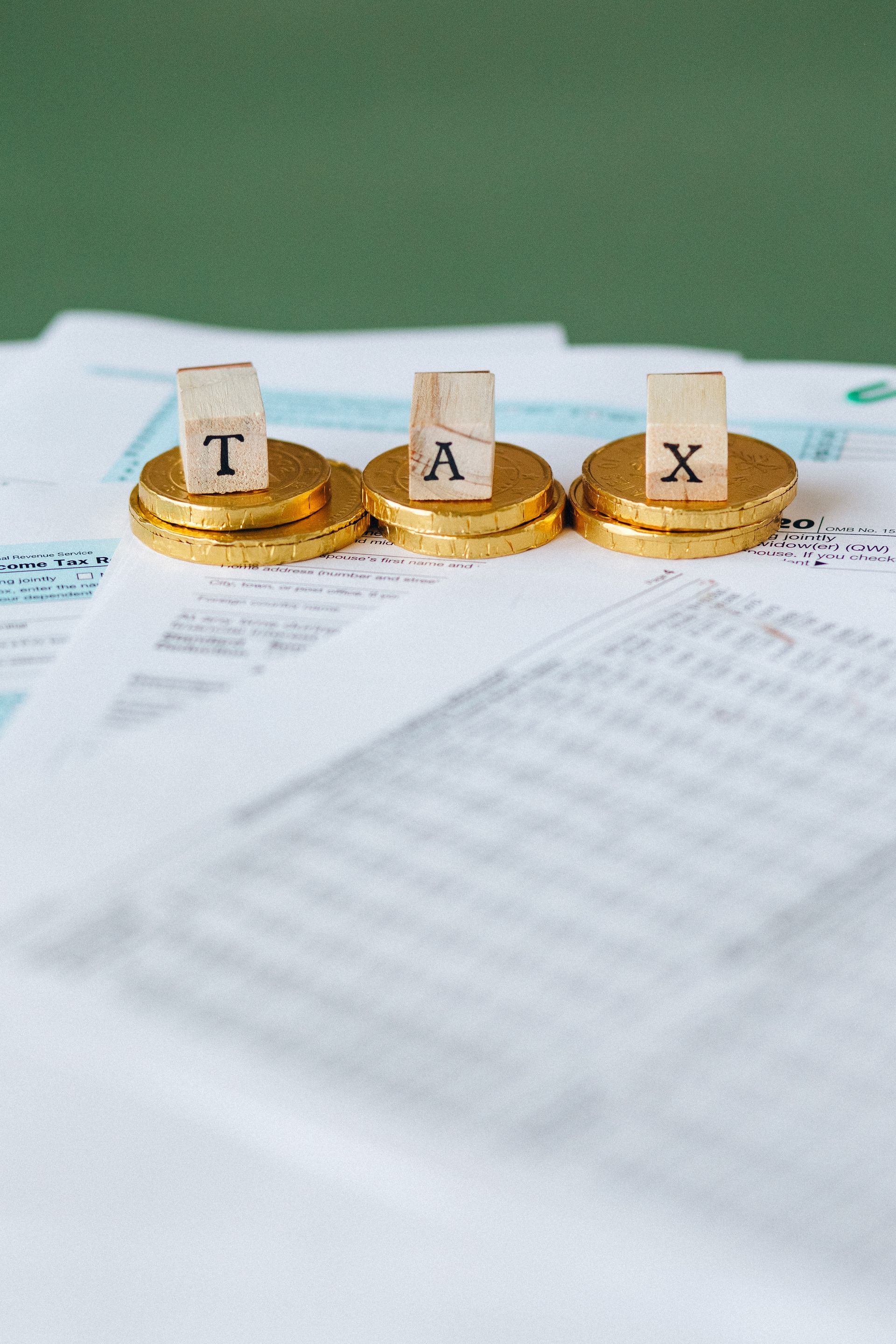by Zoe Taylor
•
3 July 2023
Are you looking to quickly revolutionise your finances? Check out these top ten tips that are easy to do yet have huge impact! 1. Review your Priorities The last few years have seen many of us reflect on what is truly important, reassess our goals and forced us to check on our financial resilience. For some, the slower pace of life during lockdown gave a taste of retirement that has spurred them to seriously work on their plan to leave early. Others realised how dependent they are on their ability to earn, and some simply relished time with their family and resolved to work less in the future. Whatever the impact for you, make sure your historic financial plans have adapted to your new goals. Planning can quickly become out of sync if left unreviewed – working towards historic objectives cannot get you in the financial position you now desire. 2. Use them or Lose them Many of the allowances and exemptions that you can use to mitigate tax bills are ‘for a limited time only’! Being a little more organised and seeking what can be done before the end of the tax year can help you get in a much better financial position. From ringfencing savings so they grow free of income & capital gains tax, to putting money away for the kids or gaining tax relief, lots of good can come from making plans before April! 3. How can I pay less tax in my business? The old saying ‘work smarter, not harder’ rings true here. There are all sorts of expenses that can be run through your business that you might be missing, from uniform and use of your home working equipment to pension contributions or relevant life insurance. Getting profits out of your business without paying lots of tax can be made easy for directors using carry forward allowances to get up to £180,000 into your own pension whilst gaining corporation tax relief (so it only costs your company £ 145,800). 4. Is there really a financial penalty for being a woman? Women historically have been behind men in the financial stakes, but with generational changes and the help of auto enrolment schemes, the proportion of women aged over 30 saving for retirement is at an all-time high. 59% of woman and 60% of men are now saving adequately for their retirement (which means saving at least 12% of their income or in a defined benefit scheme). 1 However, with 75% of all part time workers being women (largely due to caring responsibilities) and an annual medium difference in wages between men & women of £10,800 (men earning more), this means women will end up with a £100,000 pension deficit on average over a 44-year career. 55% of men checked how their investments were doing during the pandemic, but only 33% of women did so – women’s risk psychology and lower financial engagement is reflected in their pensions returns which, without advice, fell three times more than men’s. 2 5. Should I use a financial adviser? Recent studies have been investigating the ‘value of advice’ – the value added by and adviser above simple investment returns. They have quantified this as a further 4.08% per annum due to a number of factors, including rebalancing of funds, stopping clients making behavioural mistakes such as disinvesting at low market points, changing legislation, tax planning and management. 3 Around the house I’m happy to do DIY, but I always pay an expert to do the stuff that’s not safe for me to do or that I don’t have time to do. It’s no different with investing – think honestly if you have the time and know-how to choose between different funds, build a portfolio and manage it regularly. The most popular reasons for seeking advice include; To have a sounding board, and share the responsibility of making financial decisions, Fear of missing out on good investment opportunities or specialist advice, Fear of making bad decisions – for example taking on too much risk. Approaching a milestone or event such as retirement, receiving an inheritance, divorce or purchasing a property. 6. How can I protect my income? Building a solid foundation is crucial to ensure that you are resilient, whatever life throws at you. Keeping at least 3 months’ worth of your typical spending aside as an emergency fund brings peace of mind – something that has been highlighted recently during the pandemic. A combination of savings and adequate protection policies can give you a solid base to work from. Sadly, April 2020 saw 83% more life insurance claims (31% Covid-19 deaths, 80% male, average age 64) year on year, and GoFundMe saw a 192% year-on-year rise in the number of pages raising money in the “memorial and funeral” category. 2 Income protection has come into the spotlight also, with many of us having had a stark reminder of how much we depend on our ability to work and earn to support ourselves and our families. 7. Should I repay my debt? Often our biggest lifetime purchases are property, and the length of time the debt is spread over means even tiny interest rate change can have huge effects. Look to take advantage of the current decades low interest rates and consider fixing low rates in for peace of mind. Prioritise expensive debts that need repaying, such as credit cards and unsecured loans, even if it’s just reducing the amount outstanding. In years gone by, people have tended to receive inheritances while they were still raising their own families and buying homes, helping reduce debt early and allowing payments to be redirected to other financial goals like investments and pensions. However, with older generations increasingly expected to live into their 80s and even 90s, recent years have produced a shift – and one that poses a real challenge for women in the so-called ‘sandwich generation’ - those raising children and caring for ageing parents at the same time. Now, the financial boost arrives later in life, with the average age of inheritance lying between 55 and 64. This means we are all more responsible and need to be more financially astute and independent than ever before. 8. Have I been a victim of Fraud? 2020 saw lots of financial fraud attempts, particularly with unregulated investments, pension ‘liberation’ schemes, wine investments and cryptocurrency scams. Typically, with legitimate firms and investments, you will be covered by the financial ombudsman or the financial services compensation scheme (FSCS) – but unauthorised firms or firms stealing a legitimate companies name when cold calling are not. You can check the FCA Warning List for firms to avoid (there are over 600 of them). This list isn’t exhaustive however, although generally speaking if you get a cold call about your pension or an investment opportunity, the safest thing to do is hang up - it’s illegal and probably a scam. Even if it’s not a scam, you may also be targeted for unregulated investments, which don’t offer the same protections – such as gold, wine, UK forestry, development land or hotels. Fraudsters can be articulate and financially knowledgeable, with credible websites, testimonials and materials that are hard to distinguish from the real thing. Unrealistic returns, flattery and time pressure are all warning signs - if it sounds too good to be true, it probably is. Check out https://www.fca.org.uk/scamsmart for loads of help and advice. 9. What can I do if I can’t find my pension? The Association of British Insurers (ABI) estimates that more than 1.6 million pension plans, worth £19.4 billion are currently lost or unclaimed. That amounts to an average of £13,000 per plan. 1 According to the Pensions and Lifetime Savings Association, a single person will need £10,200 a year to achieve the minimum living standard, £20,200 a year for moderate, and £33,000 a year for comfortable – so finding lost pots can be a big help. 4 With your national insurance number, the names and addresses of your previous employers, and some help from the government’s Pension Tracing Service, you should be able to find out everything you need to know. See www.gov.uk/find-pension-contact-details for more information. When you’re on top of what you’ve got, you might also want to consider consolidating older pension plans into one to make things easier to manage. 10. Lessons to learn from the Pandemic Stay positive. Don’t let your short-term memory cloud your long-term judgement. Be optimistic. You have a better chance of success if you are hopeful of the outcome and will make more positive decisions along the way. “When you are a pessimist and the bad thing happens, you live it twice,” Amos Tversky Dream big! Set your ambitions high and you’ll have a better chance of a great outcome. It’s much more satisfying to reach 75% of a challenging goal than 100% of an easy one. Diversify. You can’t control market ups and downs, but you can do something to help control how much your investments are affected by them. Different types of investments behave in different ways at different times. So, if you’re investing in only one or two kinds, you could be exposing yourself to quite a degree of risk. Making sure that your money is spread across different types of investments and geographical locations - called diversification – could mean that the overall value of your investments is less likely to fall as dramatically than if you were just invested in one or two kinds. Mighty oaks grow from little acorns grow. Small regular contributions soon add up – between growth and compound interest the value can quickly build so don’t be conscious of seeking advice just because ‘wealth management’ doesn’t seem quite the right phrase to use right now! References 1 Women and Retirement 2020 Standard Life 2 Living a financially resilient life in the UK beyond Covid-19 – CII IWF 3 https://russellinvestments.com/Publications/US/Document/2017_Value_of_Advisor_study.pdf 4 https://www.plsa.co.uk/Press-Centre/Press-Releases/Article/PLSA-launches-Retirement-Living-Standards The levels and bases of taxation, and reliefs from taxation, can change at any time. The value of any tax relief depends on individual circumstances.







